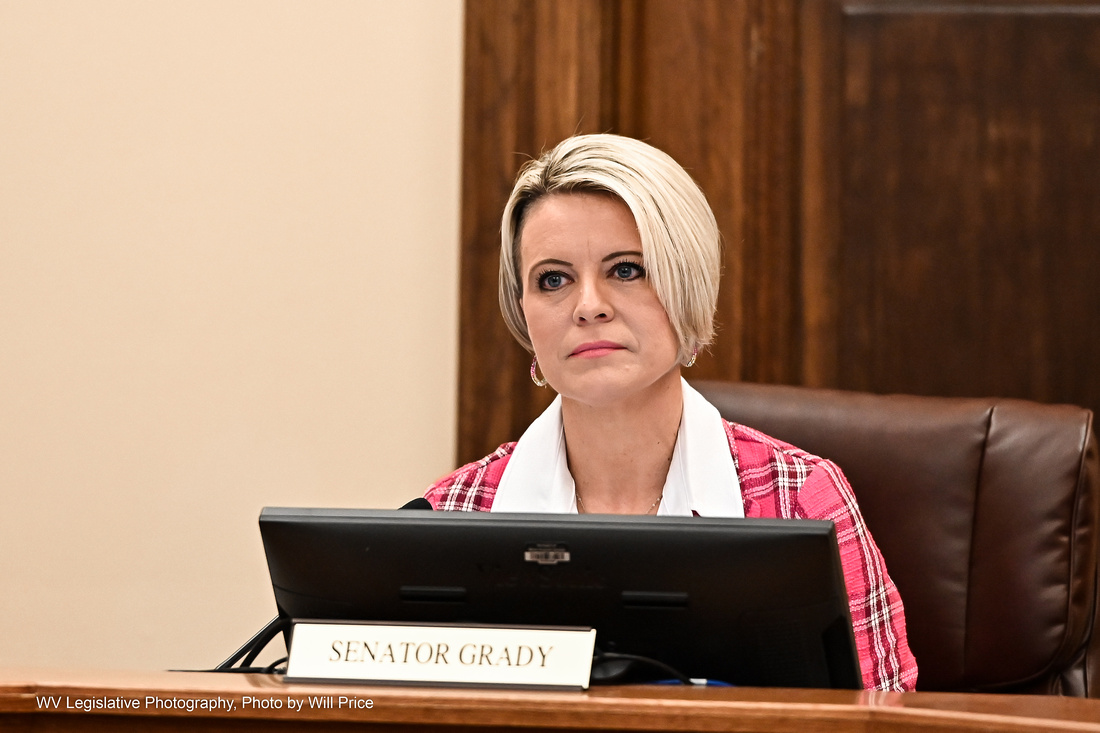A novel approach to the staffing issues facing West Virginia schools could be piloted if a bill originated by the Senate Education Committee Thursday is approved into law.
Senate Bill 736 requires the state superintendent to establish a three-year pilot project of a non-traditional school week in up to five county school districts. Students would be required to be present in school four days a week, with a fifth day of instruction to be delivered through alternative methods.
West Virginia Superintendent of Schools David Roach told the committee that he was lukewarm to the idea initially but has warmed up to it since hearing from interested school leaders across the state.
”Based on a letter I received, it opened my eyes a little bit more about the possibility of how it could really help in some counties where they will never have an opportunity to equal the pay rate and have a lot of teachers that are not necessarily trained in pedagogy or any aspect of it, and it gives this time for that training to occur,” Roach said. “We have a lot of good talent, but if you’re not trained in how to manage a classroom, it’s very difficult, and actually how to teach so students are able to learn. I think it has a lot of positive things to it, and I would be very willing to try this, because as one said, it is very innovative and it might meet the needs of many counties in the future.”
Sen. Rollan Roberts, R-Raleigh, suggested revisiting proposals for year-round schooling and including private schools in alternative scheduling plans moving forward. He asked Roach if any bordering states had piloted or implemented alternative schedules, to which Roach replied that he was not aware of any and proceeded to read part of a letter from a West Virginia county superintendent in favor of the alternative schedules.
The letter stated an alternative schedule would allow school systems to address the problem of long-term substitutes and career switchers who are increasingly filling the ranks of educators.
“These are individuals with enthusiasm and enormous potential, but very little experience in running a classroom or instructional pedagogy,” Roach read. “Second, it would address the lack of planning time that is widespread. With the shortages we are facing our teachers rarely have a full planning period.”
The letter referred to a different schedule than the one proposed by the bill, which would utilize the fifth day of the week exclusively for lesson planning and professional development of teachers. It further argued that without the possibility of competing with border states financially for teachers, something like an alternative schedule could be the ticket to attracting teachers into West Virginia.
Sen. Laura Chapman, R-Ohio, expressed concern as to how the proposed fifth day of lessons would be provided. The bill allows each county the freedom to determine how to approach the alternative schedule.
“We’re in West Virginia and internet access is spotty at best,” she said. “I just want to make sure that if this is implemented in the pilot programs, and I understand it’s up to the counties, that there is access to all the students for that fifth day.”
Senate Education Committee Chair Sen. Amy Grady, R-Mason, said that she often hears that West Virginia’s educational system is at the bottom.
“This is a way to think outside of the box and to try it a little bit instead of just going all in – try and see what’s successful,” she said. “I’m a big believer in quality over quantity. Meaning if the instructional time you give is the best possible instruction, the quality instruction you give is top notch. It’s way better than being in school more days with lower quality.”
Grady, who is a teacher, emphasized the need for teachers to have planning time to prepare purposeful and intentional instruction. With staffing shortages, teachers are often required to cover other classrooms in lieu of planning.
Grady also encouraged school districts to receive input from parents on the proposal, but also spoke to the issue of childcare that often arises when there are disruptions in school schedules.
“That’s important, but the purpose of schools isn’t to provide childcare for families. It’s not the purpose,” she said. “The purpose of schools is to give our children the best education we possibly can and if this helps with that, that’s fantastic.”
The bill originated in the Senate Education Committee. It was introduced to the Senate on Friday. The committee recommended that it pass.
